Red Heart: Episodes 15-16 (Final)
by solstices
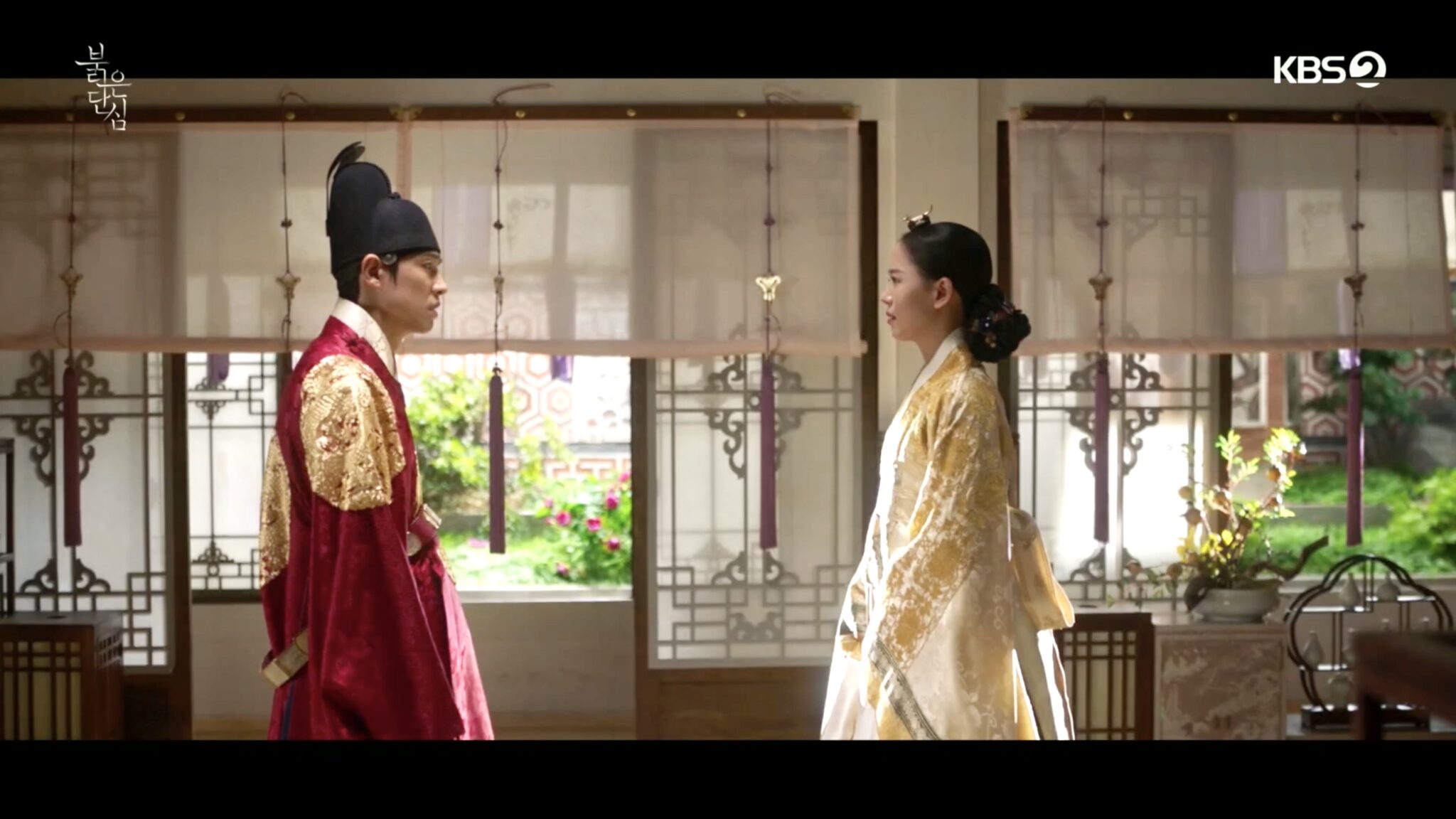
The struggle for power culminates in a stalemate between the king who demands his rightful authority, and those who wish to keep him in check. Yet death spares no one, and the path here has already been stained with blood. It’s up to our king to decide how he will rule over his subjects, and what kind of country he will build.
EPISODES 15-16 WEECAP
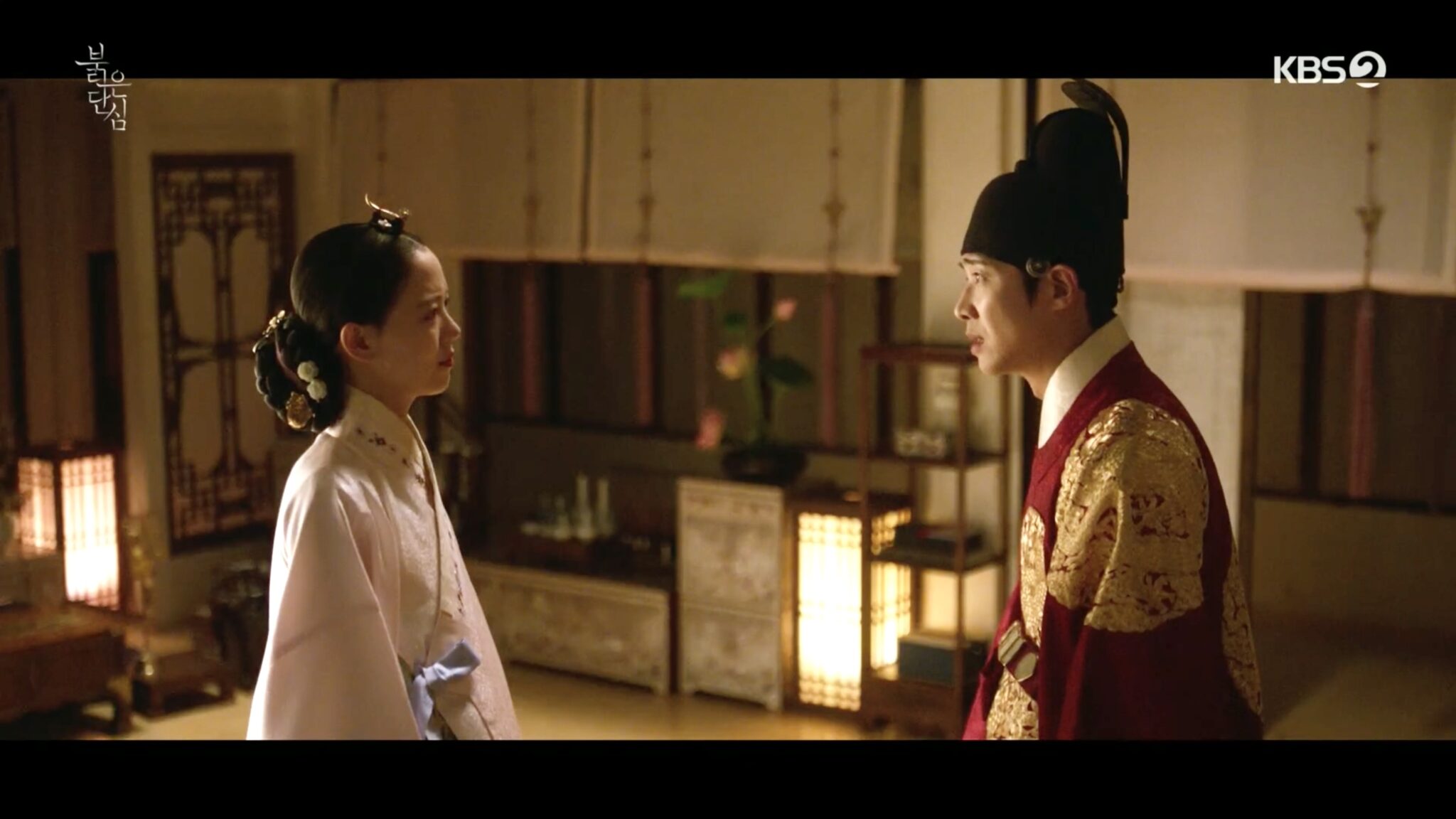
Caught red-handed, Tae admits to orchestrating the entire scheme, and a disappointed Jung can barely look him in the eyes. She reminds him that actions have consequences — just as the late king’s decision to protect his son led to the execution of her family, Tae’s choices have resulted in innumerable deaths.
Tae calls them inevitable sacrifices, but Jung cannot comprehend how the weight of a life can be taken so lightly. Jung’s words leave Tae deeply shaken, but his loyal eunuch reminds him that he protected those he could.

The royal court convenes, and the ministers beseech Tae to depose the queen dowager for her crimes. On the contrary, though, Tae refuses — instead, he diverts the blame onto the queen dowager’s loyal subjects, thus weeding out those who do not support him.
Tae can’t depose his mother without the unfilial act undermining his rule, which means she has to be eliminated behind the scenes. However, Gye-won recognizes that killing the queen dowager will only set a precedent for even more mutiny during Tae’s reign.
Refusing to set any more bloodshed in motion and ruin the country further, Gye-won vows that he will not murder the queen dowager in cold blood.

As such, Gye-won meets with the queen dowager and asks her to step down of her own accord. He tells her of Tae’s wish to have her killed, and she counters with a question — would Gye-won follow through on that order?
Gye-won says that he would not, yet he staunchly states that the only reasons for his refusal are the queen dowager’s status and position as the king’s mother. Heartbroken once again, the queen dowager renews her resolve to tear down Gye-won’s beloved country.

Determined to wrest power away from those who once opposed him, Tae declares his intention to restructure the Central Army Division so that it falls under the Ministry of War (led by Minister Jo). Gye-won opposes — the Central Army is governed by the Ministry of War, but commanded by the Central Army Division, so that neither side can have absolute power.
Gye-won recognizes the importance of this system that has both sides keeping each other in check, and he even falls to his knees in front of Tae to ask him to reconsider.


Tae remains unmoved, and he points out that Gye-won only stopped back then when the late queen died and Tae agreed to a royal marriage. As such, he demands for the same — either Gye-won offers up a life and something to trade, or he sacrifices the queen dowager. Tae isn’t backing down unless he can claim the same things Gye-won once did.
It’s the epitome of “an eye for an eye,” yet between the two, it seems only Gye-won recognizes that the age-old adage ends with a chilling reminder that such vengeance will ultimately turn the whole world blind. Tae has been through so much pain that he wants his enemies to hurt the same way, but he doesn’t realize that he risks becoming just like them.

Tae’s oppressive rule has already begun to surface negative consequences; Jung understands that if the status quo remains, the Sarim scholars will suppress their disapproval of her in order to avoid angering Tae. Without the scholars’ ability to speak up and challenge the king, no one will be able to keep him in check.
As such, Jung resolves to come clean about her identity and be reinstated as Scholar Yoo’s daughter, even if it will put both her and Gye-won on the chopping block for their charade.
Drawn together yet again by circumstances and shared ideals, Gye-won proposes a deal to Jung — launch an official investigation into the queen dowager’s crimes with the Sarim scholars, so as to find justification for her abdication. In exchange, he will convince Tae to reinstate her status.
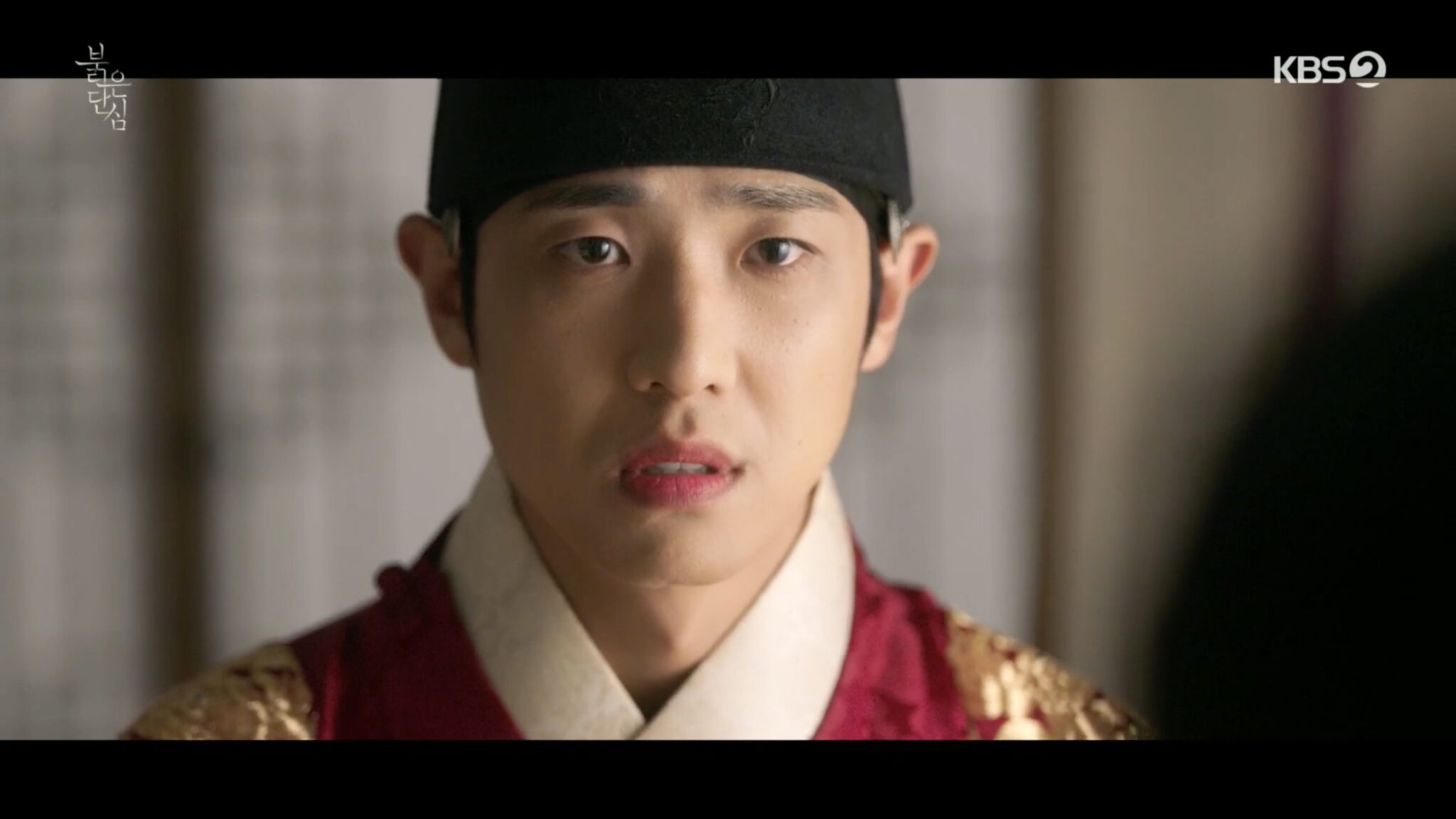

Gye-won reveals Jung’s identity to the royal court, which has Tae heading straight to confront Jung. Believing that she was threatened by Gye-won once again, he’s stunned to hear that she was the mastermind.
Jung explains her rationale — Tae has proven himself capable of sowing conflict amongst his subjects to take those who oppose him down. If no one stands against him, he will simply continue to manipulate, purge, and seize power. Since Tae sees it as the easiest way out, there will be no end to it.


Tae’s trusty eunuch is determined to defend Tae’s right to the throne, and he informs Tae that he’s hired bandits to assassinate the queen dowager on her way out of the palace. It’ll be disguised as her mercenaries taking revenge for not being paid their dues.
However, the queen dowager has her reasons for voluntarily leaving the palace despite knowing she’s in danger, and Gye-won realizes that. She’s willingly walking to her death, in order to accuse Tae of it and ruin his reign.
Gye-won rushes to her, arriving just moments before Tae’s eunuch fires his arrow. Finally recognizing her pain, he expresses his regret for not allowing her to live a simple life with him.

But their moment of reconciliation is cut short by the sound of an arrow piercing through the air. Gye-won flings himself in front of the queen dowager, taking all the arrows meant for her. As he bleeds out, he urges her to live on, until she can smile again one day.
Oh, that hurts. It’s so tragically poetic that his actions led to her undoing, and her schemes led to his death. Endless miscommunication between the two set the stage for years of misunderstanding, resulting in a vicious cycle that neither knew how to break free from.
Perhaps that’s the most fitting punishment for the queen dowager; she now has to live in loneliness, accompanied only by her regret and the possibility that things could have turned out differently.

Gye-won’s death seems to have been the catalyst for much-needed growth on Tae’s part — when the Ministry of War amasses too much power, he sends Minister Jo away to the countryside in order to regain balance. Rather than unwavering loyalty from a devoted subject, or the all-dominating power of the royal authority, Tae has chosen to put his country first.
Time passes, and Jung gives birth to a son. Tae has her officially installed as queen, calling her both the blade that keeps him in check and the sanctuary that offers him refuge. And so, we close the book on this chapter, with the hope that Jung will continue guiding Tae to become a benevolent ruler.
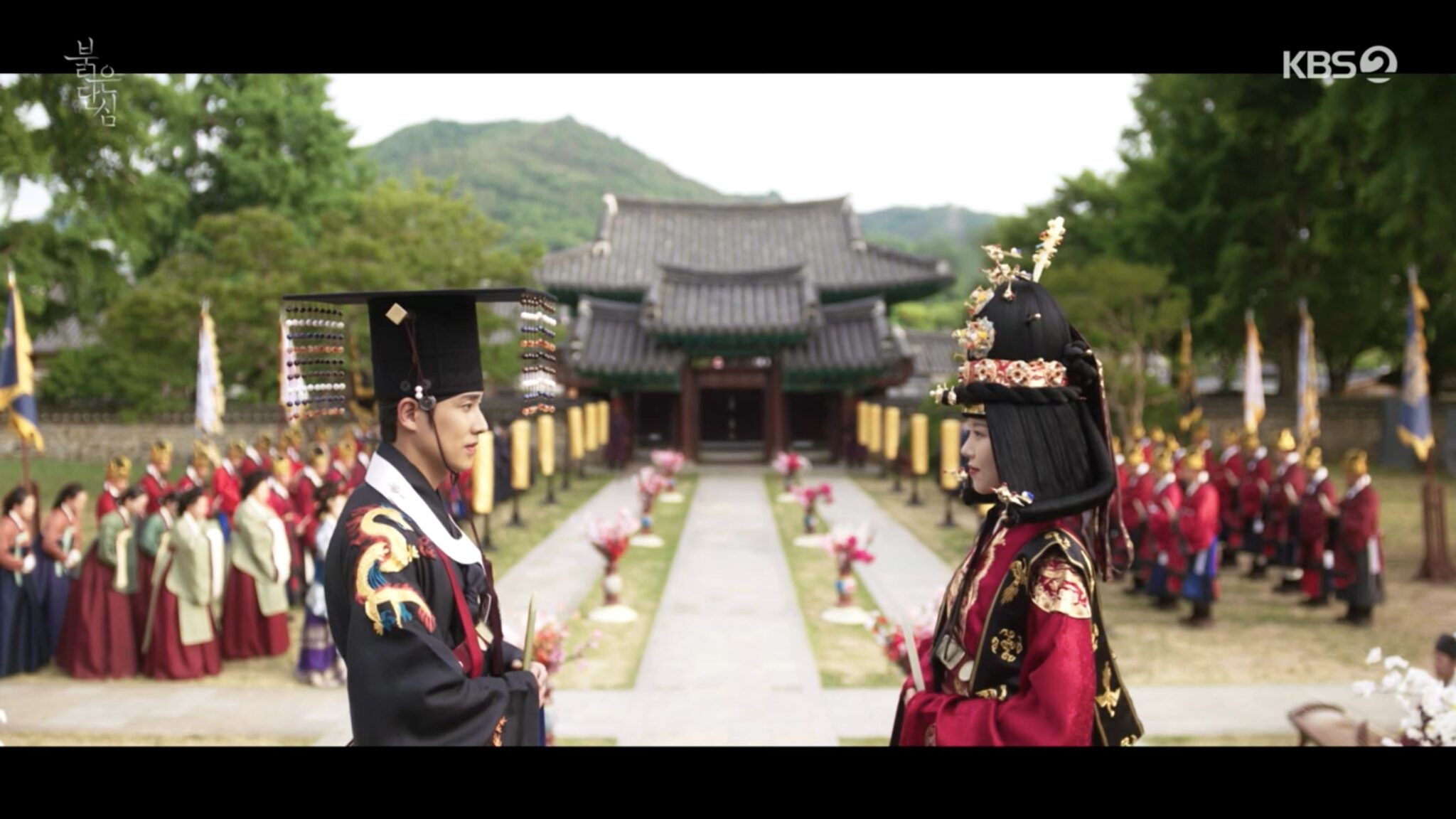
What a masterful tale of strategy, deception, and the lengths people will go to for power. I think part of what makes Tae such a sympathetic hero is that we witness his suffering firsthand; being privy to his pain and turmoil primes us to root for him in his quest to regain what has been cruelly snatched from his grasp.
However, power and respect have to be earned, not taken. Gye-won put it best when he said that a king who cannot tolerate harsh advice has the makings of a tyrant — while Tae’s steadfast commitment to his ideals can be admirable, it tends to veer into an obstinate refusal to be swayed, even when his dissidents have valid points.
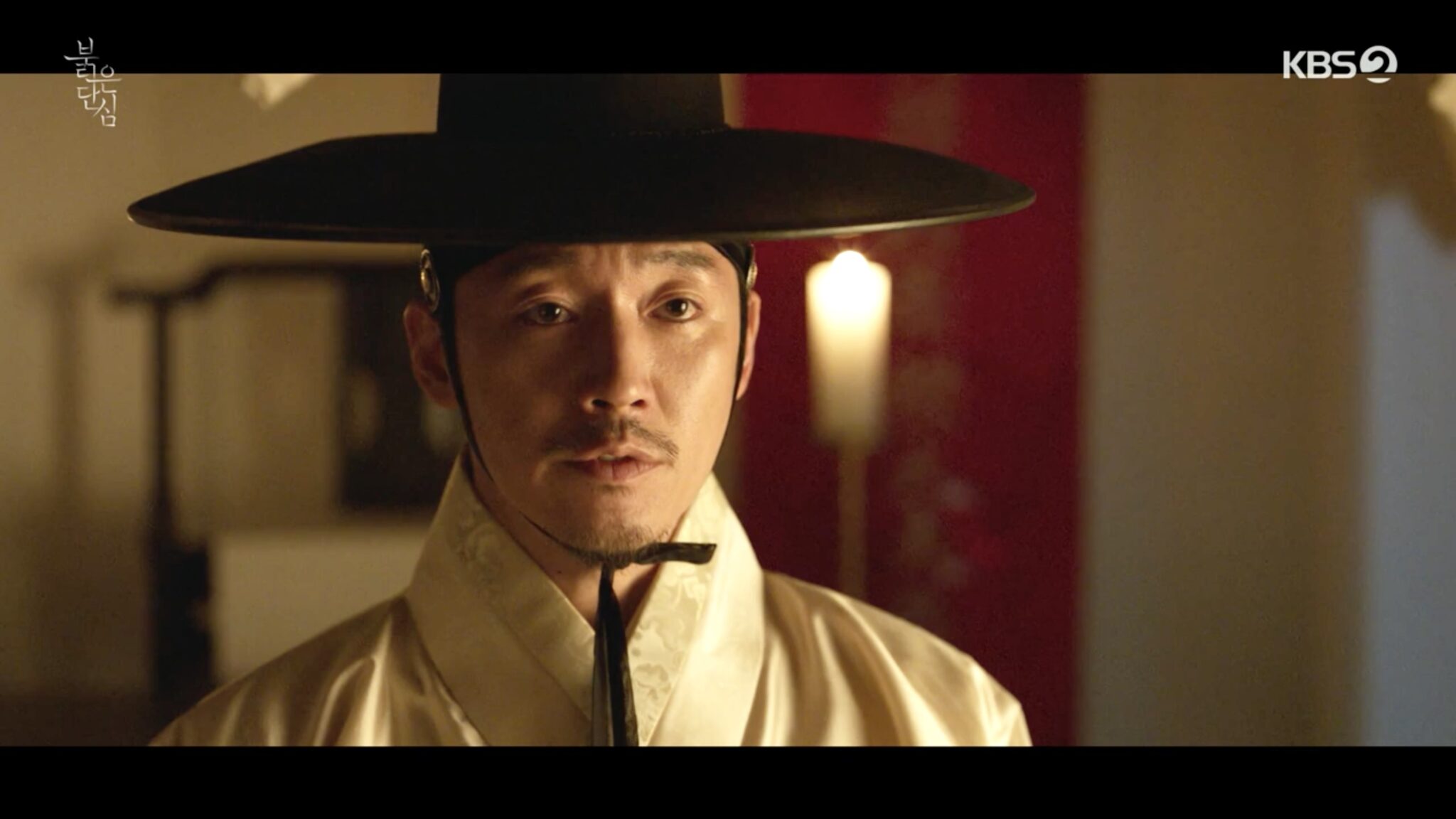
It’s interesting how the drama starts off by painting Tae as a wronged hero, and Gye-won as a bloodthirsty villain; yet over the course of the show, their positions slowly shift as we come to learn more about them. By the end, I found myself understanding Gye-won’s motivations and even supporting his ideals (though I disagreed with his methods), whereas I wound up quite disillusioned with Tae.
While Gye-won acknowledged and admitted to his faults, Tae often couched his harsh decisions in excuses, claiming to be acting for Jung’s sake. Yet he was acting on behalf of her, not for her; he did what he thought was best without properly consulting her opinion. It makes sense that Tae desperately desired to protect those he loves, especially considering the losses he’s suffered through, but it often felt like he was shirking responsibility for his decisions.

Still, how much of that can be blamed on him? While he made the choice to walk down the path he did, the factors that pushed him there in the first place cannot be discounted. Had he not suffered such tragedy, perhaps he may not have developed such an obsession with power and survival. Yet on the other hand, Jung proved that it is possible to forgive and choose kindness over vengeance.
Hence, I thoroughly enjoyed watching Jung reclaim her agency and stand proud as herself. I like that she never compromised on her compassion or her values, and that she had the courage to walk an untrodden path in order to uphold her ideals. She’s aware of the dangers that the palace poses, yet she never once shies away from it — instead, she strives even harder to survive and do the best she can.

To the end, I was never quite sure how Red Heart would conclude its tale, and I think that’s an indication of how all the characters were layered, well-developed, and simply just human. While each character sometimes made decisions that seemed illogical or irrational, a closer examination always revealed a justification that made sense within the parameters of that character’s worldview.
Gye-won’s line, spoken to Tae as an apparition in the wake of his death, will likely stay with me even past this drama’s finale — “All deaths are humble.” Regardless of power or status, we are all ultimately human, equal in death. It’s a sobering reminder to stay humble, remain cognizant of our faults, and strive to do better while we still can.

RELATED POSTS
Red Heart: Episodes 15-16 (Final)
Source: Buzz Pinay Daily
0 Comments